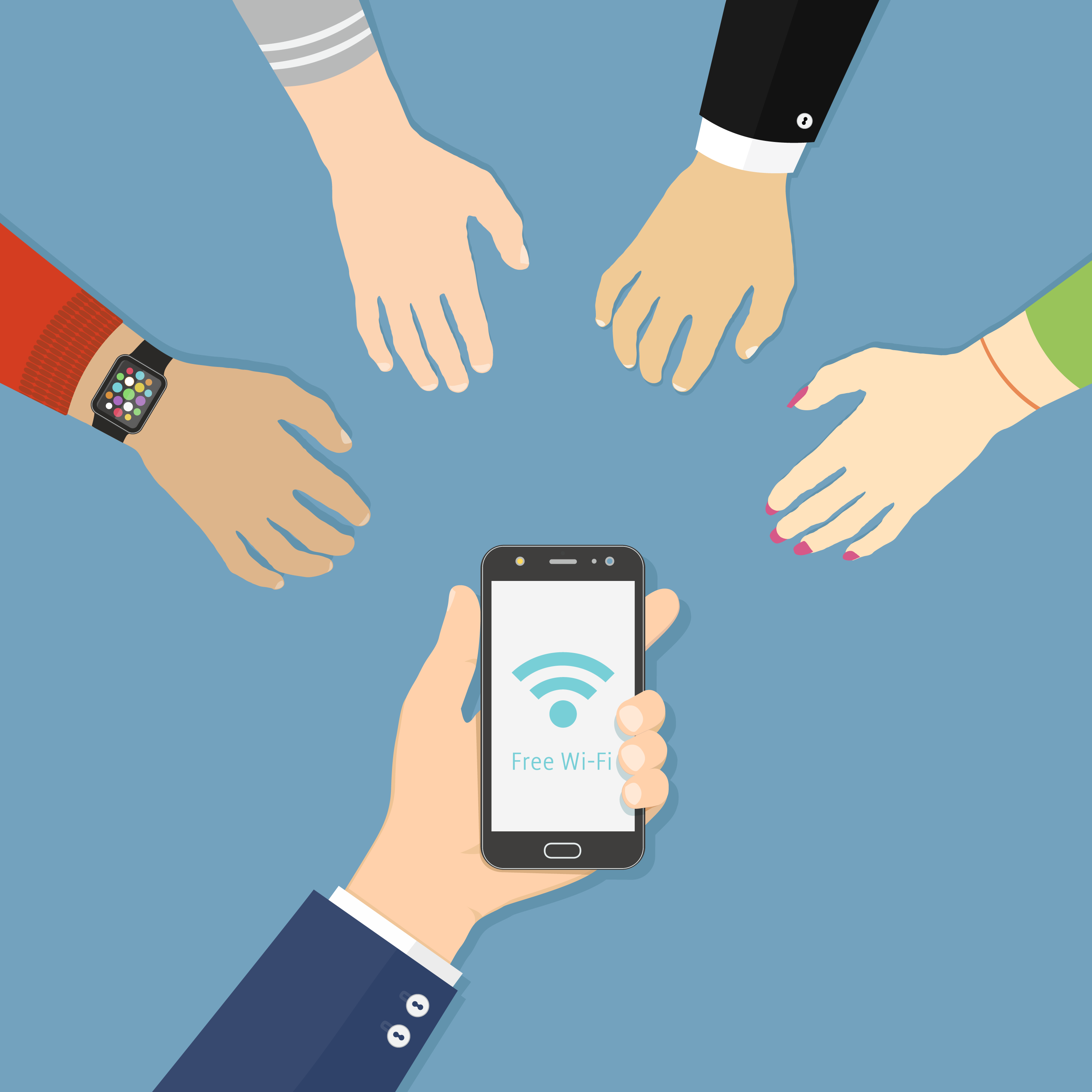Mac Randomization and Impact for Physical Spaces

During the summer of 2020 Apple announced an important update as part of the release of iOS 14 and watchOS 7. Initially Apple was intending to change the MAC address every 24 hours, and avoiding Wireless Network SSIDs to remember devices, therefore preventing SSIDs to track and profile users over time and recognize repeat customers. This caused a shock across the WiFi community, Network operators as well as companies rely on MAC address based operations and customer experience. Apple likely received pressure from industry players to change its position and announced that it will not randomize MAC address every 24 hours. Instead, the randomized private MAC address will remain the same when a device connects to the same network SSID that it was previously connected. Therefore the SSIDs will be able to remember guests during their next visits
How does Apple’s randomize MAC address with iOS14 and watchOS7
MAC is short for media access control, a unique identifier for each electronic wireless device that connects to Wi-Fi network. Each hardware chip has a static Hardware MAC address, which is used for various purposes in Wireless industry by Network Operators as well as enterprises / companies / physical spaces / homes. Some examples of use of hardware MAC address includes parental control, MAC authentication at workplaces, recognition of repeat guests and visitors for physical spaces
IPERA, its channel partners and customers have used the static MAC address to make the WiFi experience more convenient for guests, recognizing repeat customers to provide them better and frictionless Wi-Fi experience. Previously connected visitors and customers are recognized whenever they visit the same location again, and they won’t need to re-enter their login credentials each time they visit. Credentials are remembered, and they are automatically signed in to the network with a welcome message. This function is called Smart Login on IPERA Starling platform and MAC address is used to detect repeat customers.
Another benefit that companies gain from static MAC address is to understand customers behavioral insights such as visit patterns, dwell time, presence, etc. for better customer communication and tailored offers at the right moment. A repeat visitor or loyal shoppers could receive a welcome back text message including a contextual targeted special offer at their arrival at the store.
In short, a static MAC address made it easy for companies with physical locations to market and get to know more about their guests and visitors. This is the reason why WiFi industry has grown to be a critical part of modern marketing. However, having a static MAC address has grown concerns around customer privacy. Many customers feel that they don’t have control over their own data, and they don’t have clue about how their data is uses when they consume a mobile app or an online service. Therefore, privacy has become a concern for enterprises like Apple, and it has been a while now Apple is trying to improve the consumer privacy. Here is the latest article around this topic on Apple website.
From Apple website:
To communicate with a Wi-Fi network, a device must identify itself to the network using a unique network address called a media access control (MAC) address. If the device always uses the same Wi-Fi MAC address across all networks, network operators and other network observers can more easily relate that address to the device’s network activity and location over time. This allows a kind of user tracking or profiling, and it applies to all devices on all Wi-Fi networks.
To reduce this privacy risk, iOS 14, iPadOS 14, and watchOS 7 use a different MAC address for each Wi-Fi network. This unique, static MAC address is your device’s private Wi-Fi address for that network only.
Similarly, Android and Microsoft operating systems are also adopting the Privacy approach.
There are three impacts of the MAC Randomization for the Wi-Fi Analytics firms and physical spaces
Lack of Guest Recognition Across Multiple Locations & Wi-Fi Networks
Captive portals are web pages presented to users during initial network connection, typically for guest networks. They’re used to deliver legal terms and agreements, for guest/visitor login, to capture some guest info in exchange for connectivity, and for authentication/billing purposes, such as usage-based hotspots. In many cases, captive web portals use the MAC address as the device anchor, and so the user’s authorization state is connected to the MAC. If the MAC ever changes, the infrastructure will force the user through the portal again, creating a user-experience challenge.
The good news is that an individual location WiFi network is not affected. After upgrading to iOS14, a user’s device will have to reconnect again using credentials. However, during the following visits, their mobile device will have the same private MAC address, and it will be automatically connected.
However, for companies having multiple locations, multiple brands, multiple wi-fi networks and multiple SSIDs will face the issue of MAC randomization, because each network will have a different private MAC address. As an example, if a holding company runs several different brands / stores, not having a static MAC address would make it difficult for each brand to offer a smooth and overall guest WiFi experience — even if they’re all owned by the same company.
Reason is that, Guest Wi-Fi management solutions rely on MAC address to recognize a repeat guest. With the new MAC Randomization, a private MAC address is generated by mobile device for each SSID. The location’s WiFi network won’t be able to recognize a returning guest even if they’ve been to the company’s other locations in the past or have shopped the brands that are owned by the same company.
Visitor Journey Across Multiple Locations
Companies will still have visibility on wi-fi location analytics & insights for an individual location. They will be able to see customer footfall / density and heatmap data as well as customer flow & path analytics in venues like airports, shopping malls, theme parks, etc.. However, they won’t have the ability to build a history of guest activity across various locations and brands — owned by the same company— so they will no longer be able to build an entire brand journey using their MAC address.
Contextual Targeted & Tailored Customer Communication
Building customer communication strategies based on Wi-Fi location analytics is one of the key components of the modern Guest Wi-Fi system for physical spaces. Instead of bulk marketing, digital marketing teams build tailored communication strategies which benefits both venue operators and consumers. MAC Randomization plays a great role to understand repeat visitors. For an individual location, it will be possible to understand the behavior and segment customers based on their visit patterns & behavior. However, if multiple locations use multiple Guest Wi-Fi networks or SSIDs, even owned by the same company, connecting with guests based on their previous activities in multiple locations or across multiple brands — owned by the same company— won’t be possible anymore.
The way forward for frictionless guest experience
It is clear that MAC randomization story will not end here, with iOS14. There was a push back from Apple to minimize impact on operations for network operators. However, it is clear that the industry is heading to more strict policies. It’s time to protect privacy and, at the same time, redesign the Guest WiFi experience in the most seamless way.
IPERA has been taking steps to implement privacy functionality part of Starling Guest Experience & Analytics portal. At the same time, IPERA enables companies to power their Guest WiFi and get the most benefit from their investment
IPERA is building alternatives for companies to continue providing frictionless & seamless Wi-Fi experience. At the same time they collect customers personal data while respecting their privacy, yet providing greater value to their guests.
Contact IPERA today and request a demo to see IPERA Starling platform in action. Empower your Guest WiFi experience and transform Guest WiFi into business opportunities that generates value for your business





